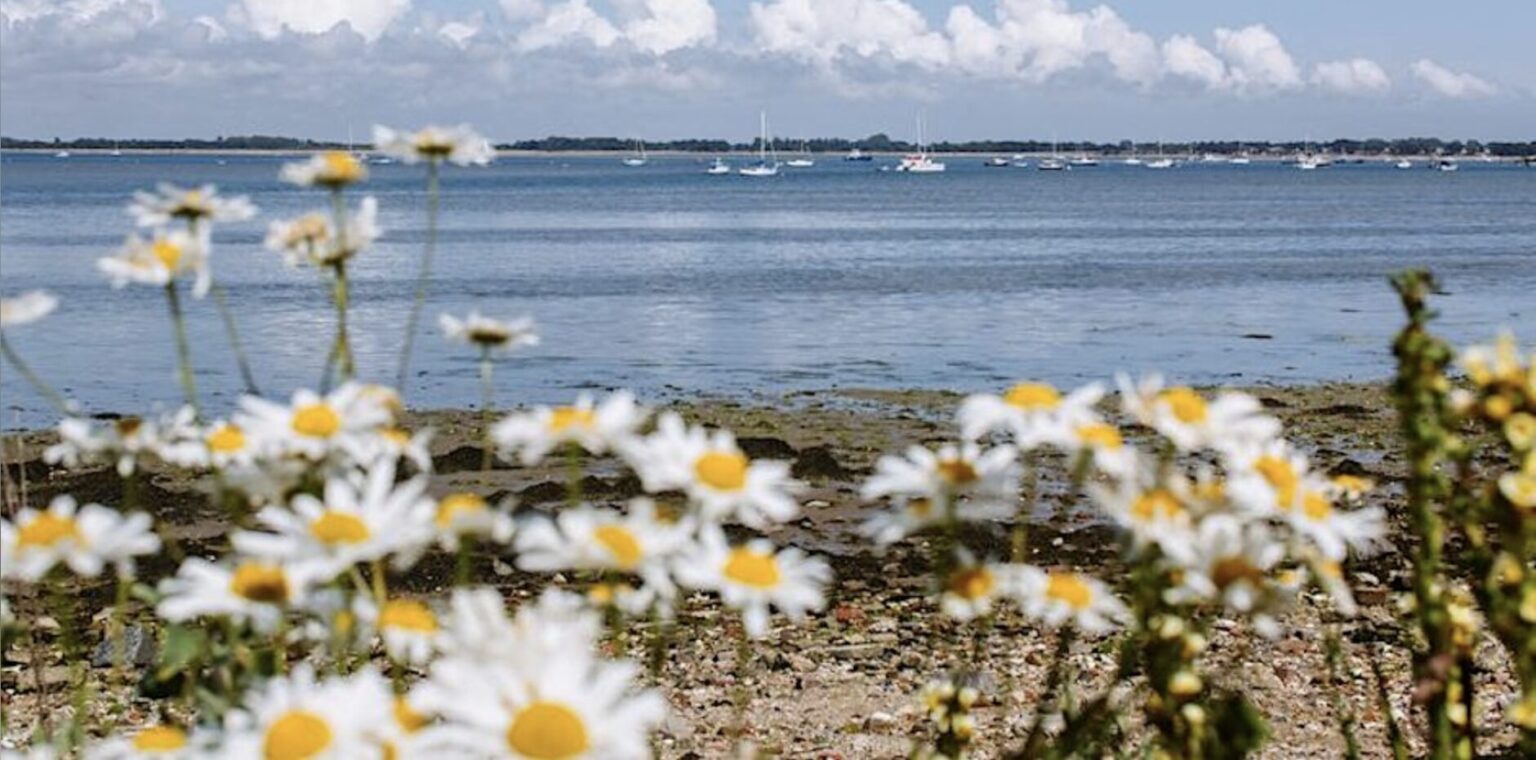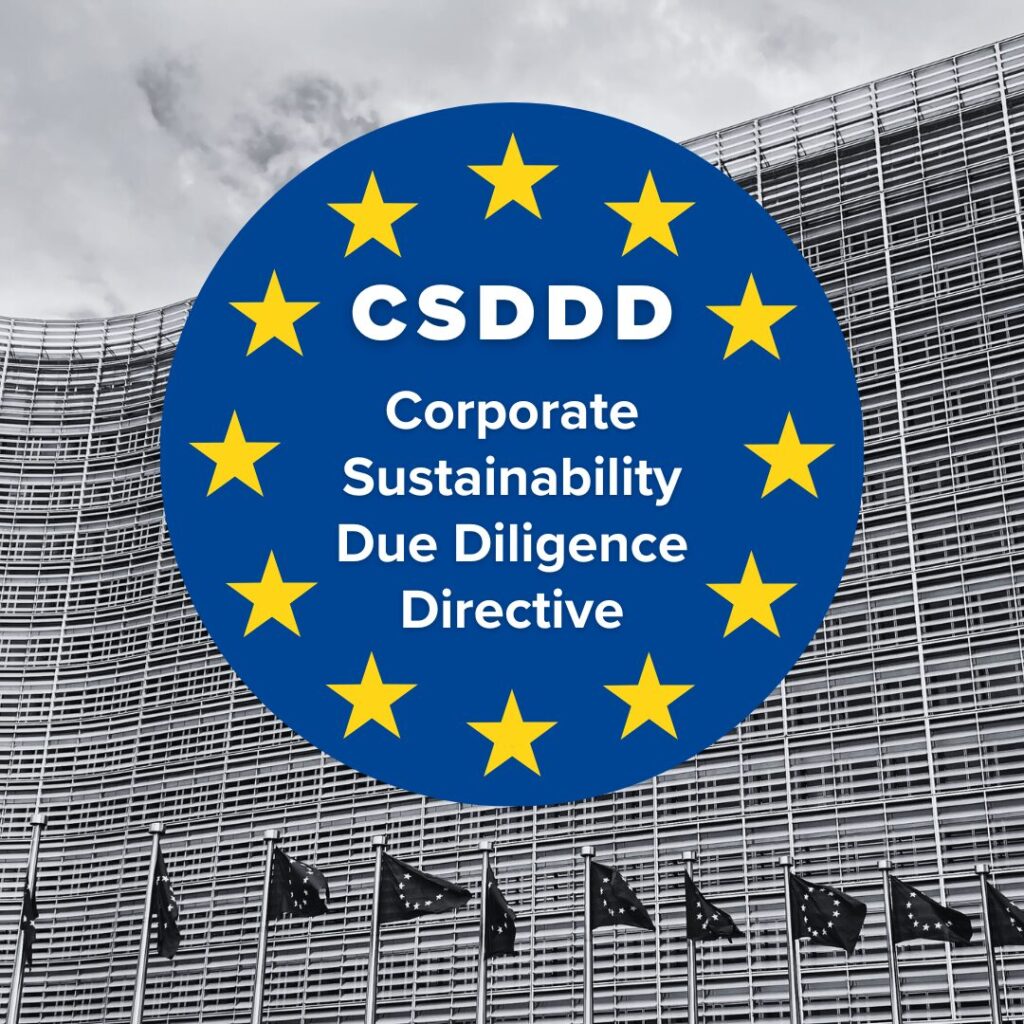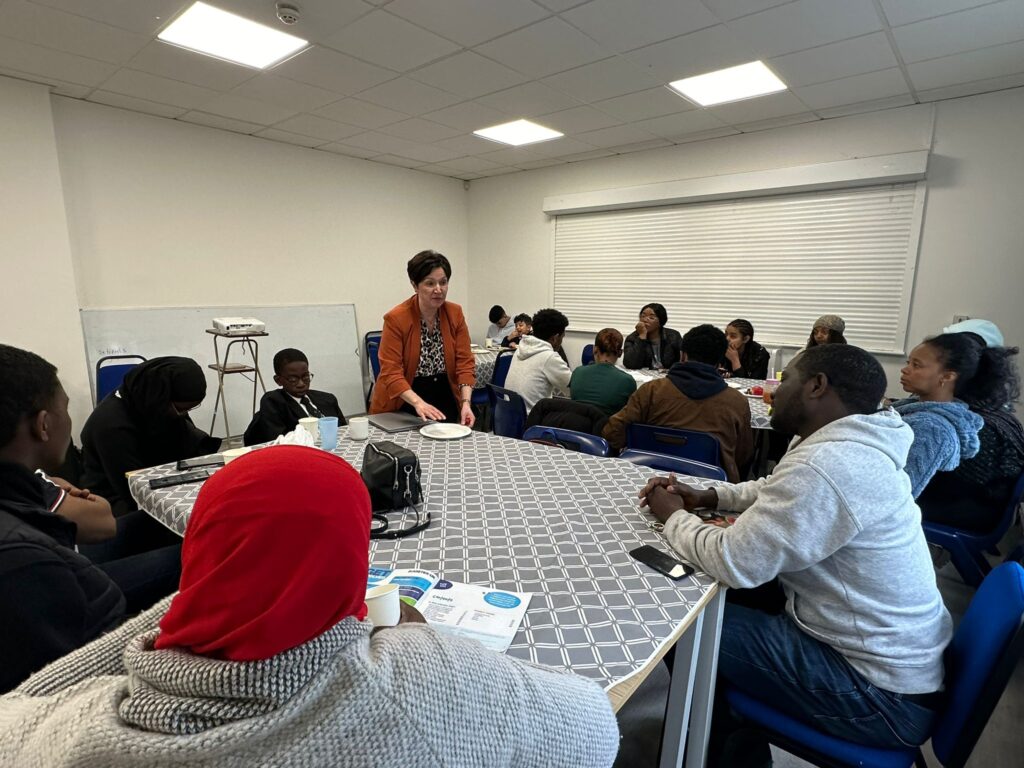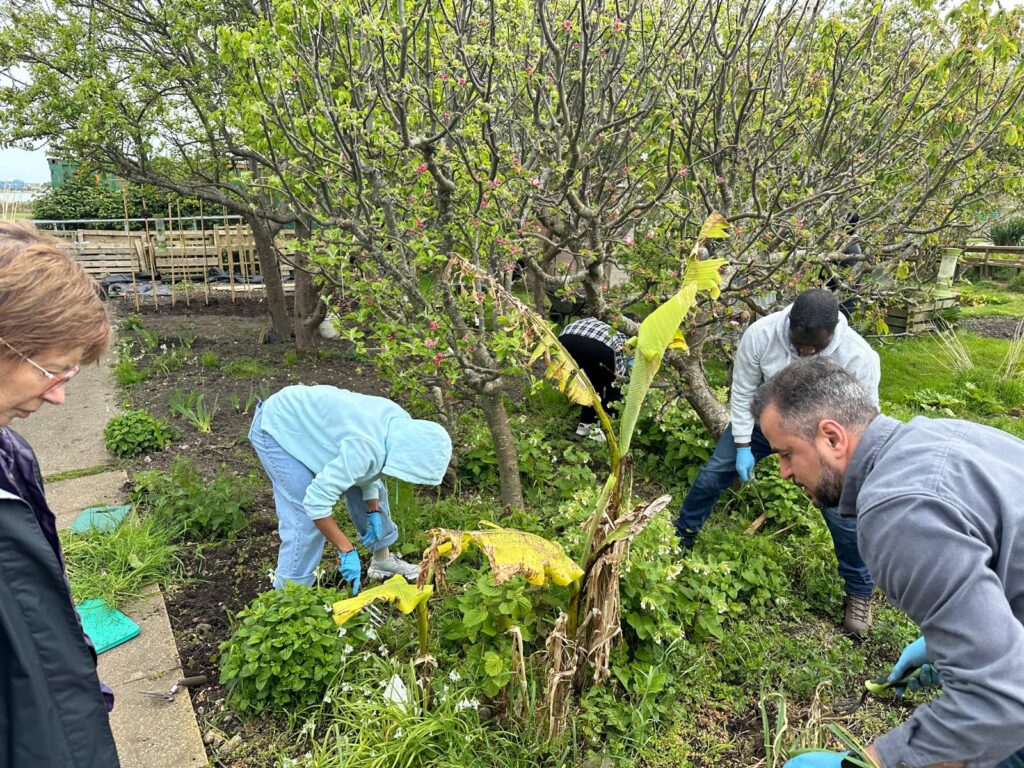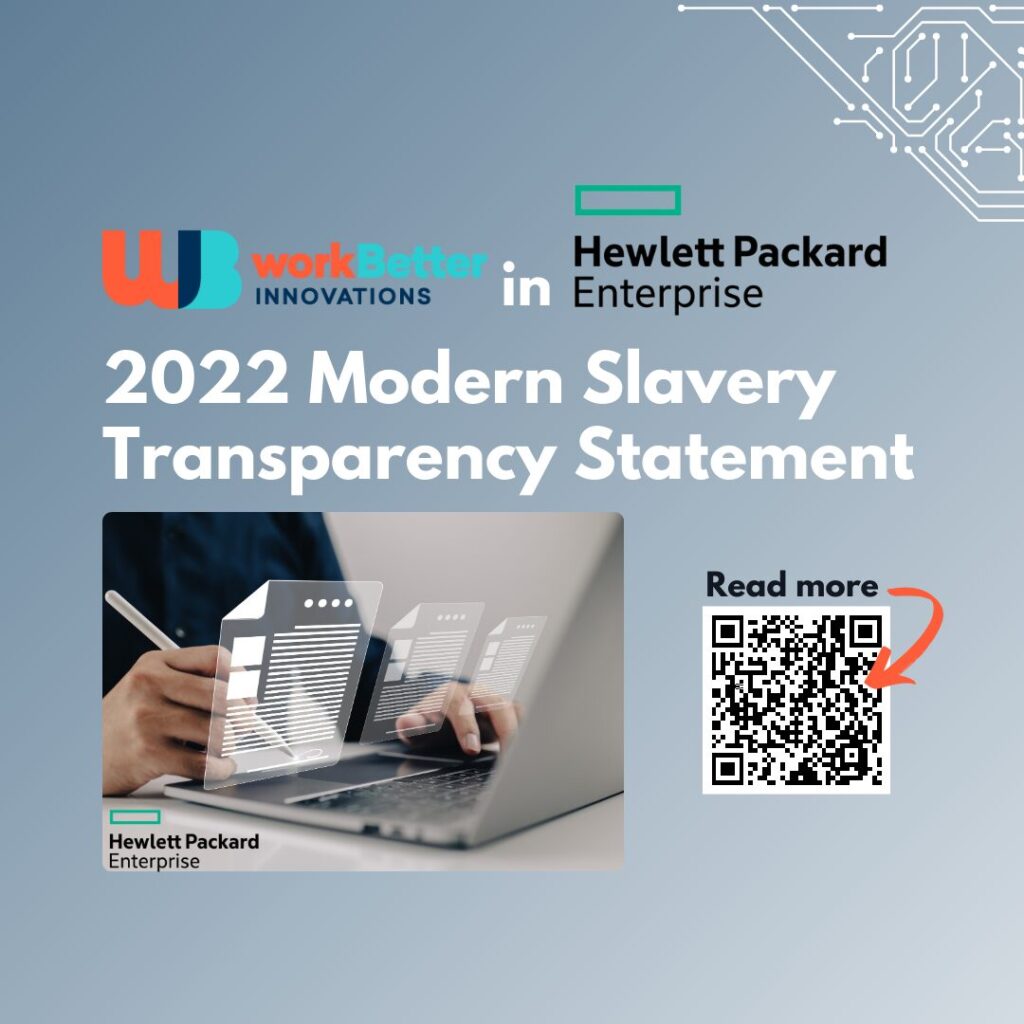2 April 2024. Last week our Executive Director Dr Ling spoke about Gender Dynamics in the Blue Economy on a panel hosted by the Blue Centre at the University of Portsmouth. The panel was the first Blue Horizon Seminar, a series organised by the UNESCO Chair in Ocean Governance, Centre for Blue Governance (CBG).
The Panel explored gender dynamics within the blue economy, in particular addressing the challenges encountered by women and potential strategies to promote inclusivity.
Dr. Bonny Ling was joined on the panel by experts from international law Leïla Choukroune, publishing Pascaline ODOUBOUROU, and research Sophie Quintin, PhD, for an insightful discussion chaired by Pierre Failler, the UNESCO Chair in Ocean Governance and Director of Centre for Blue Governance.
Dr Bonny Ling’s presentation talked about the often unacknowledged contributions of women in the maritime and aquatic industries, accurately captured in this article ‘Women anchor global fishing, but get a raw deal’.
While only 2% of the 1.5 million seafarers recorded globally are women, women make up approximately 70% of the total workforce in aquaculture. This goes largely unrecognised due to discrimination and gender bias. In Asia, as in Africa, subsidies for fishers are normally passed on through boat registrations.
“Jobs that could be ‘done by anyone’ were often assigned to women – namely carrying and processing fish. They were considered not to have the strength or know-how to fill more visible roles such as captaining a boat or being part of a commercial fishing fleet,”
according to a 2021 study.
Despite gendered stereotyping, Dr Ling pointed out that it is women in fact who carry out most catching of seafood in shallow coastal waters, often by hand.
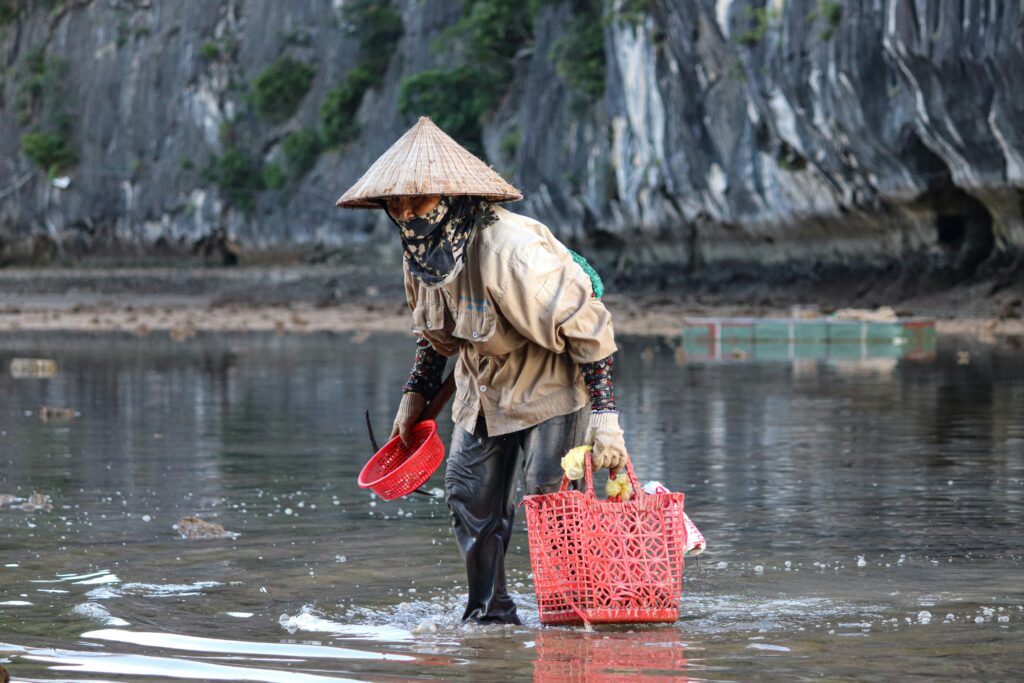 [Photo by Nathan Cima on Unsplash]
[Photo by Nathan Cima on Unsplash]
The systematic exclusion and minimisation of women’s role in the maritime sector means that women are largely unaccounted for in government schemes to provide assistance for the fishery and aquaculture sectors, for example social security benefits.
“If people are not talking about it, then governments will not necessarily be thinking about [women] when making these policies.” – Dr Ifesinachi Okafor-Yarwood, lecturer in sustainable development at the University of St Andrews, Scotland.
Gendered violence and workplace harassment is another issue facing women in the maritime. The International Labour Organisation found that women were also more at risk of forced labour abuses by managers who withheld their identity documents.
Addressing solutions for a more equitable gender representation in the fishing sector, Dr Ling referenced the recently published Proposal by the Regional Civil Society Consultation for the ASEAN Guideline on the Placement and Protection of Migrant Fishers and Their Families, where WBI was a contributor.
A mainstreamed protection of migrant fishers in all relevant migration policies, mechanisms and processes of ASEAN and its Member States should take appropriate and gender responsive measures to identify, address and punish all forms of violence, abuses and exploitation against migrant fishers.
What this means in practice is enabling women participation in policy-making, as well as building a workplace that is safely regulated and supportive.

